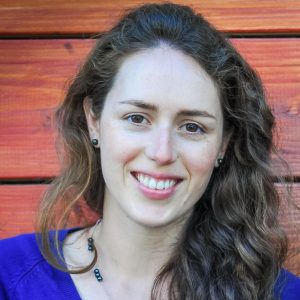Jettie Word — Executive Director, The Borneo Project
Jettie has worked extensively with rural communities around the world facing threats to their livelihoods and resources. Her passion for environmental justice led her to work on indigenous land rights issues, which are an essential component of solving the climate crisis. Since 2014 she has led The Borneo Project in its work to support and grow indigenous-managed forest protection in Malaysian Borneo. Before that Jettie worked with the Oakland Institute supporting community-initiated land rights campaigns in Papua New Guinea and Senegal, and started her career in social justice work at a community education program in Cameroon. She has a dual Masters of Public Administration in Sustainable Development and International Development from the London School of Economics and Sciences Po, Paris.
What is the educational and career path that led to your current career?
I first started thinking about systemic injustice and environmental injustice in a deep way when I studied abroad in Cameroon during college. The theme of the semester was “development” and I saw how that word could be used to do positive and healing work, but also how it could be used to help governments, corporations, and large organizations bulldoze communities with their own agenda without listening to the actual needs on the ground, all for the sake of “development.” During graduate work I dove deeper into land rights issues in particular, which really tie together many challenges — climate, social justice, agriculture, race, gender, education, land degradation. Everything is tied to how we manage land and who has rights over that land.
What environmental issues are of most concern to you?
I think it’s important to look at the challenges we face as interconnected and multi-dimensional. There aren’t any issues that exist in a silo — even the idea that “environmental” issues are about the natural world is false. Environmental issues are intertwined with poverty, racism, and social justice issues. Slavery and colonization went hand in hand with land grabbing, deforestation, and disruption of ecological systems in order to build a capitalist society and provide resources for the privileged. Environmental degradation and our warming planet are the result of that legacy of extraction, colonialism, and slavery. Our strategies for fixing these systems must acknowledge their complexity.
What are your suggestions on how WEN members can become more involved in your sector of the environmental movement?
There are so many important and impactful movements and initiatives coming together to build a better world. Join and support projects and organizations that are community focused, that envision an equitable and sustainable world, and that aren’t afraid to challenge unjust systems and propose big ideas. We are in the process of reimagining our future, and it’s time to stand behind solutions that may have seemed impossible before. It will take a lot of courage and hope to build the future.
Want to connect with Jettie? Connect with her personally on LinkedIn and follow her on Twitter.
You can also check out The Borneo Project on Facebook and follow it on Twitter.

